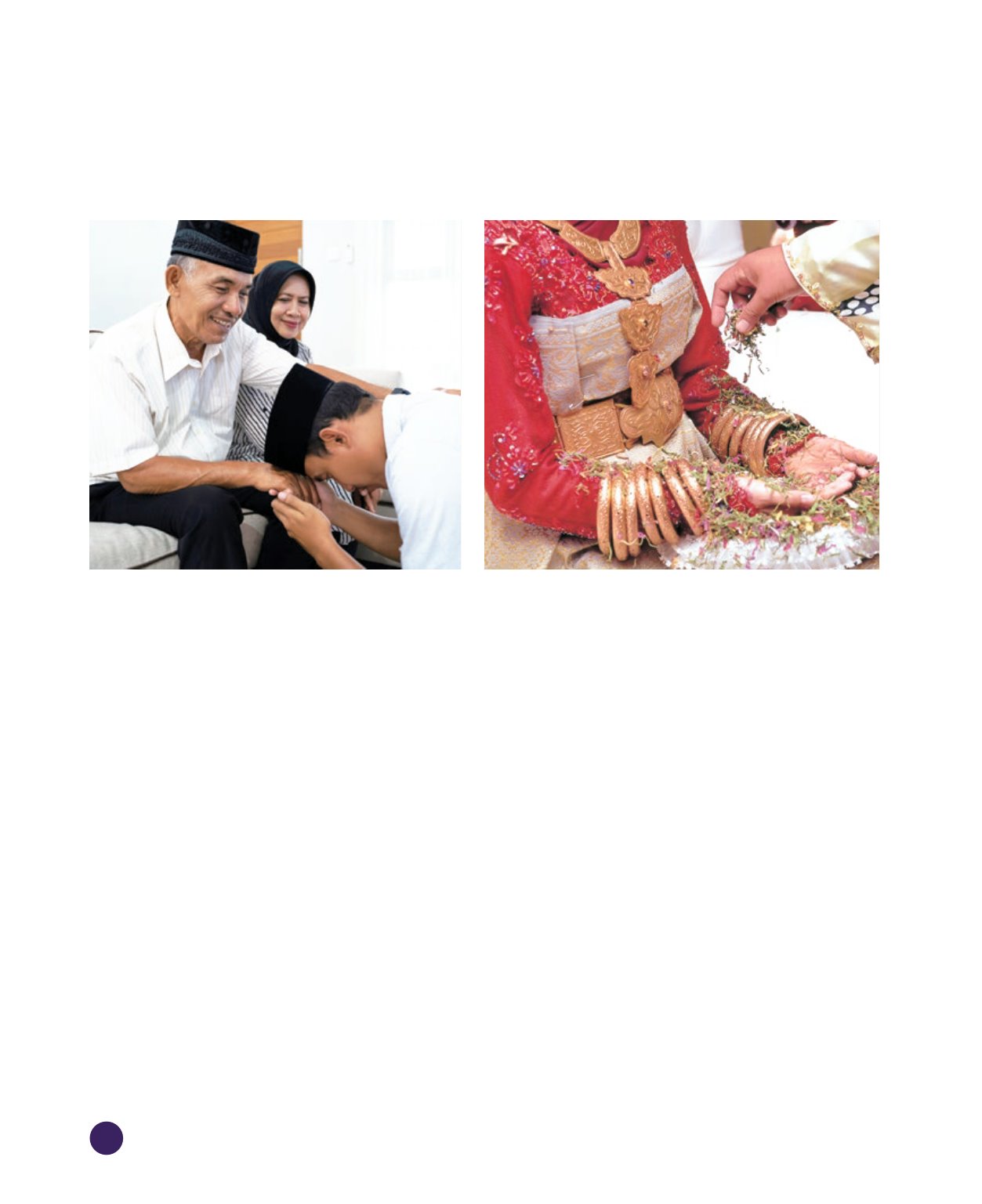

208
Borneo Bulletin Yearbook 2021
CUSTOMS AND TRADITIONS
Brunei Darussalam’s customs and traditions are
shaped by the nation’s unique syncretism of the
Islamic faith and its Malay identity. Islam was
rst introduced to Brunei in the 14
th
Century.
The religion grew among the citizens when
the nation’s rst ruler, Awang Alak Betatar,
converted to a Islam and changed his name to
Sultan Muhammad Shah. From that point, Islam
has become an important factor in the way of
life of Bruneians.
While the religion has signi cant in uences
on Brunei’s culture, customs and traditions,
traditional ethnic cultures and values are
equally as in uential. Together, the traditional
ethnic cultures and values make up Bruneian
hospitality. The two components are
emphasised in the country’s national philosophy
of Malay Islamic Monarchy.
The preservation of Brunei’s unique and
elaborate customs is helmed by the Adat
Istiadat Negara Department. Some of the
functions of the department include upholding
religious protocols and dress code of royal
ceremonies.
In Brunei Malay weddings, Bruneian Malay
customs come to life incorporated with modern
elements. The bride and groom often don out ts
incorporating the traditional and vibrant ‘kain
tenunan’ and exchange gifts presented on silver
or bronze trays called ‘gangsa.’ Each district
has its own distinct ceremonies. For example,
those from Tutong practise the tradition of
‘basuh kaki’ (washing feet). In this ceremony,
newlyweds rest their feet on a whetstone and
a machete, followed by guests pouring water
over the bride and groom’s feet and presenting
an envelope lled with money as a gift.
Bruneian customs are also incorporated into
the daily lives of its people through everyday
etiquette. For example, it is common courtesy
to bend slightly when walking past an elderly
person. While it is tradition for Bruneians to
eat with their ngers, Bruneians only eat with
their right hand. Eating with their left hand is
considered unhygienic.
Pointing at objects with the index nger of one’s
hand is considered impolite in Brunei, especially
when pointing at people. It is common practice
for Bruneians to point with their thumb instead
of the index nger.
Shaking hands is also common practice but
only between those of the same gender, given
that it is not customary for Muslims of different
genders to physically touch each other. Public
displays of affection are recommended to be
kept at minimum.
All in all, Bruneians are a tightly knit,
conservative community, known to be warm
and friendly towards visitors.









